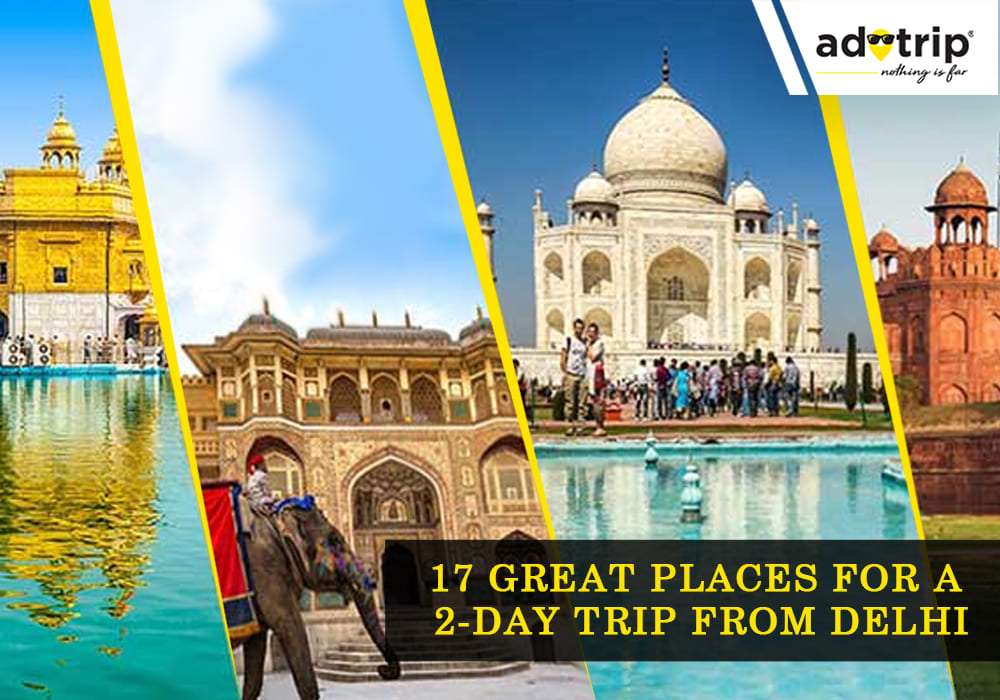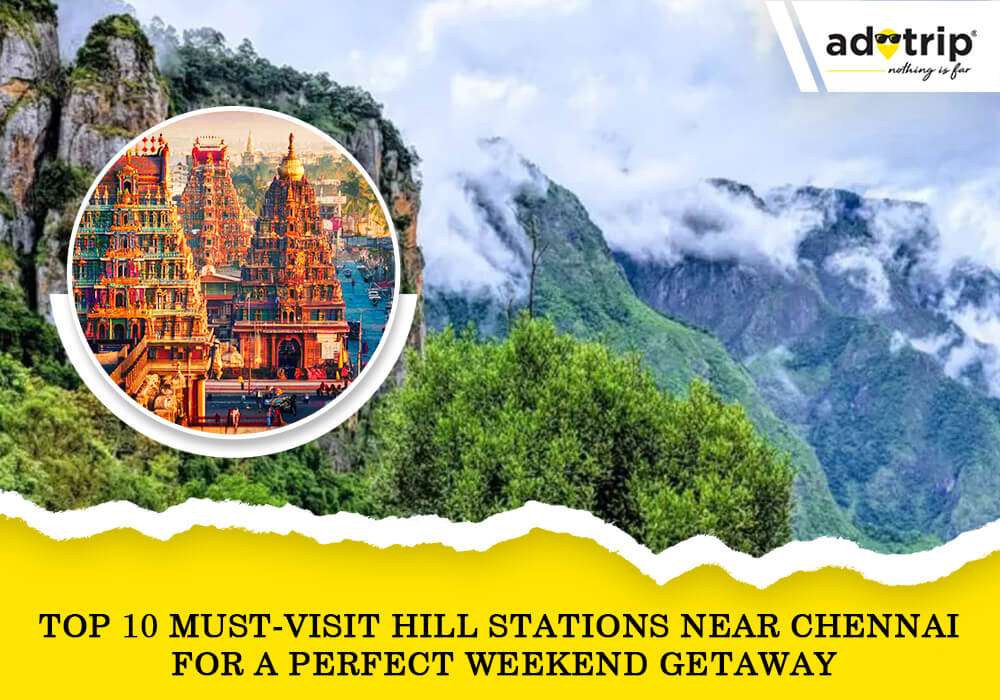
Last Updated At: 17-Nov-2023
12 Most Famous Temples in Vietnam You Must Visit
Vietnam, a nation known for its stunning landscapes and rich cultural tapestry, is home to many temples that reflect its deep spiritual heritage. Scattered across the country, these temples stand as sacred monuments to centuries of history, faith, and tradition.
From the ancient Cham towers of central Vietnam to the ornate Buddhist pagodas that grace cities and towns and even the eclectic Cao Dai temples of Tây Ninh, Vietnam's temples offer a profound glimpse into the country's religious diversity. These Ancient Temples in Vietnam are more than just architectural marvels; they are living repositories of stories, rituals, and the vibrant traditions of the Vietnamese people.
For instance, the Temple of Literature in Hanoi is a testament to Vietnam's reverence for knowledge and Confucian values. In contrast, the serene Thien Mu Pagoda in Huế has stood for centuries as a symbol of Buddhist spirituality and a place of refuge.
List Of Top 12 Famous Temples In Vietnam
As you traverse the country, you will encounter the intricate carvings, colourful sculptures, and peaceful courtyards that make each temple a unique experience. These hallowed places are a source of solace for the faithful and a wellspring of historical, cultural, and architectural treasures for visitors. In this exploration of Buddhist Temples in Vietnam, we uncover the soul of a nation deeply rooted in its spiritual heritage.
- Mariamman Temple | Hindu Temple Dedicated to the Goddess Mariamman
- Po Nagar Tower | Historical Site in Nha Trang
- My Son Sanctuary | Ancient Complex of Hindu Temples
- Subramaniam Temple | Dedicated to Lord Murugan
- Poshainu Cham Towers, Mui Ne | Dedicated to Hindu Deities
- Sri Thenday Yuttha Panin Temple | Significant Spiritual and Cultural Symbol
- Thap Doi Twin Towers | Dedicated to the Hindu God Shiva
- Tran Quoc Pagoda | Oldest Buddhist Temple
- Bai Dinh Pagoda | Largest Buddhist Temple Complexes
- Cao Dai Temple | Serves as the Holy See of the Cao Dai Religion
- Emperor Jade Pagoda | Dedicated to the Worship of the Jade Emperor
- Nhan Tower | Constructed During the Champa Kingdom's Rule
1. Mariamman Temple | Hindu Temple Dedicated to the Goddess Mariamman
Mariamman Temple, located in Ho Chi Minh City, Vietnam, is a Hindu Hidden Temples Vietnam dedicated to the goddess Mariamman, a deity associated with rain and fertility. It is a place of worship for the Tamil Hindu community and is known for its vibrant, colourful architecture and intricate sculptures. The temple holds religious significance and cultural importance, offering a glimpse into the rich diversity of Vietnam's religious landscape.
- Opening time: 7:30 AM to 8:00 AM
- Closing time: 5:00 PM to 6:00 PM
2. Po Nagar Tower | Historical Site in Nha Trang
The Po Nagar Tower is a historical site in Nha Trang, Vietnam. Dating back to the 8th century, this complex of Cham temples pays homage to the Hindu goddess Po Nagar. It features impressive red-brick towers and intricate sculptures, serving as a testament to the Cham civilization's architectural and religious heritage. The Temple Tours Vietnam is a popular tourist destination and a reminder of Vietnam's rich history.
- Opening Time: 7:30 AM to 8:00 AM
- Closing Time: 5:00 PM to 6:00 PM
3. My Son Sanctuary | Ancient Complex of Hindu Temples
My Son Sanctuary is a UNESCO World Heritage site near Hoi An, Vietnam. Dating from the 4th to the 14th centuries, it's an ancient complex of Hindu temples built by the Champa Kingdom. The site exhibits exquisite red-brick architecture, sculptures, and intricate carvings, reflecting the Cham civilization's religious and artistic achievements. My Son Sanctuary is a significant cultural and historical landmark in Vietnam, offering a glimpse into Vietnam Temple History.
- Opening Time: 7:30 AM to 8:00 AM
- Closing Time: 5:00 PM to 6:00 PM
4. Subramaniam Temple | Dedicated to Lord Murugan
The Subramaniam Temple in George Town, Penang, Malaysia, is a prominent Hindu temple dedicated to Lord Murugan, the god of war. It is known for its vibrant architecture and intricate sculptures, reflecting the Dravidian style of South India. The temple serves as a centre of worship and cultural celebrations for the Tamil Hindu community, and it is one of the Best Temples in Vietnam.
- Opening Time: 7:30 AM to 8:00 AM
- Closing Time: 5:00 PM to 6:00 PM
5. Poshainu Cham Towers, Mui Ne | Dedicated to Hindu Deities
Poshanu Cham Towers, located in Mui Ne, Vietnam, is a group of historic Cham towers. Dating back to the Champa Kingdom (8th to 15th century), they're dedicated to Hindu deities and used for religious ceremonies. These red-brick towers, set against a scenic coastal backdrop, are a testament to Cham's architectural and religious heritage. They offer visitors a glimpse into the region's rich history.
- Opening Time: 7:30 AM to 8:00 AM
- Closing Time: 5:00 PM to 6:00 PM
6. Sri Thenday Yuttha Panin Temple | Significant Spiritual and Cultural Symbol
The Sri Thenday Yuttha Panin Temple in Phnom Penh, Cambodia, is a revered Theravada Buddhist temple. It is a significant spiritual and cultural symbol in the capital city, known for its ornate architecture, intricate carvings, and serene ambience. The temple is a place of worship and meditation for locals and visitors, offering insight into Cambodian Buddhism and traditional artistry.
- Opening Time: 7:30 AM to 8:00 AM
- Closing Time: 5:00 PM to 6:00 PM
7. Thap Doi Twin Towers | Dedicated to the Hindu God Shiva
The Thap Doi Twin Towers are a pair of 12th-century Cham towers in Quy Nhon, Bình Định Province, Vietnam. The towers are dedicated to the Hindu god Shiva and are central Vietnam's most important Cham religious complex. The towers are also close to several popular tourist attractions, such as the Quy Nhon Museum, the Binh Dinh Museum, and the Hon Tre Island.
- Opening Time: 8:00 AM to 11:00 AM
- Closing Time: 1:00 PM to 6:00 PM
8. Tran Quoc Pagoda | Oldest Buddhist Temple
Tran Quoc Pagoda, situated in Hanoi, Vietnam, is the country's oldest Buddhist temple, dating back over 1,500 years. This picturesque pagoda is located on a small island on West Lake and features a striking red and gold pagoda and numerous statues and relics. It's a serene and historically significant site, attracting worshippers and tourists seeking tranquillity and cultural insight.
- Opening Time: 7:30 AM to 8:00 AM
- Closing Time: 5:00 PM to 6:00 PM
9. Bai Dinh Pagoda | Largest Buddhist Temple Complexes
Bai Dinh Pagoda, located in Ninh Binh, Vietnam, is one of Southeast Asia's largest Buddhist temple complexes. It boasts an impressive architectural ensemble featuring grand halls, intricate carvings, and beautiful statues. This site is a place of worship and a major pilgrimage destination. It offers a traditional and contemporary design blend, surrounded by picturesque natural landscapes.
- Opening Time: 7:30 AM to 8:00 AM
- Closing Time: 5:00 PM to 6:00 PM
10. Cao Dai Temple | Serves as the Holy See of the Cao Dai Religion
The Cao Dai Temple, situated in Tây Ninh, Vietnam, serves as the Holy See of the Cao Dai religion. This unique faith blends elements of various world religions, including Buddhism, Taoism, Confucianism, and Christianity. The temple is known for its ornate architecture and colourful religious ceremonies. Followers gather to worship and participate in rituals that reflect the eclectic nature of Cao Dai's beliefs.
- Opening Time: 7:30 AM to 8:00 AM
- Closing Time: 5:00 PM to 6:00 PM
11. Emperor Jade Pagoda | Dedicated to the Worship of the Jade Emperor
The Emperor Jade Pagoda, located in Ho Chi Minh City, Vietnam, is a Taoist temple dedicated to worshipping the Jade Emperor, the highest Taoist deity. It is known for its intricate architecture, vividly painted sculptures, and an atmosphere of spiritual serenity. Devotees and visitors come to pay their respects and soak in this historical site's cultural and religious significance.
- Opening Time: 7:30 AM to 8:00 AM
- Closing Time: 5:00 PM to 6:00 PM
12. Nhan Tower | Constructed During the Champa Kingdom's Rule
Nhan Tower, found in Phu Yen Province, Vietnam, is an ancient Cham tower complex constructed during the Champa Kingdom's rule (8th to 12th century). These red-brick towers were initially dedicated to Hindu deities and later repurposed as Buddhist shrines. Nhan Tower boasts impressive architectural details and intricate sculptures, reflecting the historical and religious heritage of the Cham civilization. It is a noteworthy cultural and historical site.
- Opening Time: 7:30 AM to 8:00 AM
- Closing Time: 5:00 PM to 6:00 PM
Read More : Places To Visit In Vietnam
Conclusion
Vietnam's temples represent a rich history, culture, and spirituality tapestry. They are more than just places of worship; they are living testaments to the country's diverse religious heritage. From the ancient Cham towers to the tranquil Buddhist and vibrant Cao Dai temples, each site tells a unique story, often set against breathtaking natural landscapes. The Temples Near Hanoi, Vietnam, offer visitors an opportunity to delve into the nation's rich history, pay homage to deities, and experience the reverence and customs of the Vietnamese people. They are poignant symbols of the country's spiritual devotion and enduring connection to its past.
So, plan your trip to these spiritual places with Adotrip. Enjoy a wealth of information, end-to-end travel assistance and BOOK Flights, Hotels, and Tour Packages under one roof.
With us, nothing is far!
Book Vietnam Tour Packages
Frequently asked questions regarding temples in Vietnam
Q1. What are the most famous temples to visit in Vietnam?
A1. Some of the most famous temples to visit in Vietnam include the Temple of Literature and One Pillar Pagoda in Hanoi, Thien Mu Pagoda in Huế, Cao Dai Temple in Tây Ninh, Perfume Pagoda near Hanoi, and My Son Sanctuary near Hoi An.
Q2. Can you provide information about the significance of the Temple of Literature in Hanoi?
A2. The Temple of Literature in Hanoi is significant as Vietnam's first national university, founded in 1070. It's dedicated to Confucius and his scholars and honours the importance of education and learning in Vietnamese culture. The temple symbolises knowledge and is a well-preserved example of traditional Vietnamese architecture.
Q3. Are there any special customs or etiquette I should follow when visiting Vietnamese temples?
A3. When visiting Vietnamese temples, it's essential to show respect. Here are some customs and etiquette to follow: Dress modestly, remove your shoes before entering temple buildings, speak quietly, and do not touch religious artefacts or disturb worshippers. It's also polite to make a small donation when lighting incense or candles.
Q4. What is the best time of day to visit temples in Vietnam?
A4. The best time to visit temples in Vietnam is usually in the morning when the weather is cooler and less crowded. This allows for a more peaceful and reflective experience. Additionally, many temples may have specific opening hours.
Q5. Do I need to pay an entrance fee to visit temples in Vietnam?
A5. Many temples in Vietnam do charge an entrance fee for tourists, although the cost can vary from one temple to another. Some temples offer free admission for locals, while others may have a modest fee for locals and tourists. Be prepared to pay a small fee when visiting most temples; the funds often go towards maintenance and upkeep.
--- Published By Adotrip
Latest Blogs

17 Best Places for 2 Days Trip from Delhi

Top 10 Hill Stations Near Bangalore for an Unforgettable Get...

Top 10 Hill Stations Near Chennai For a Perfect Getaway

10 Best Hill Station Getaways Near Gurgaon for Peace Seekers

10 Astonishing Underwater Temples of India You Must Visit in...
Speak to our experts
Popular Flights
Vadodara to Udaipur Flights
Vadodara to Jaipur Flights
Pune to Srinagar Flights
Coimbatore to Bangalore Flights
Jaipur to Bangalore Flights
Raipur to Lucknow Flights
Mumbai to Jammu Flights
Vishakhapatnam to Ahmedabad Flights
Lucknow to Delhi Flights
Kochi to Ahmedabad Flights






 Dubai
Dubai Malaysia
Malaysia USA
USA






